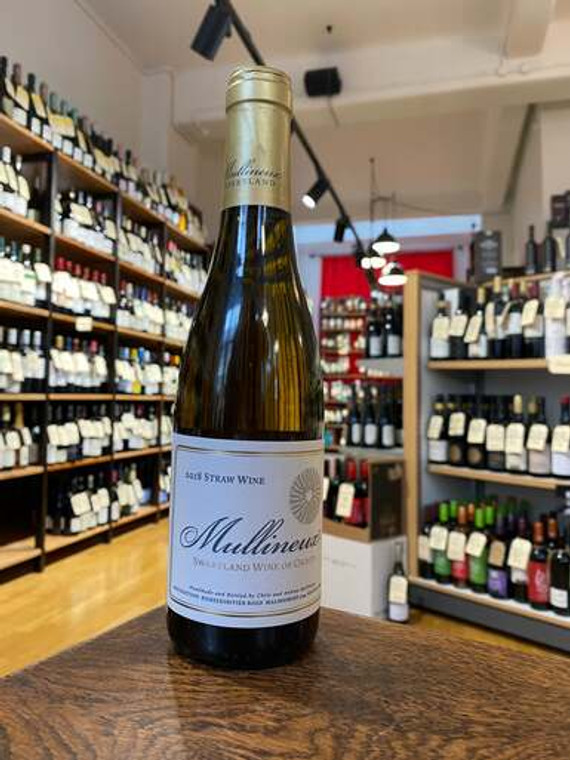
"The Deep golden straw in colour, with a rich, viscous appearance. The nose and palate is a complex, enticing blend of dried peaches, apricots and marmalade, with savoury, nutty aromas of almonds, marzipan and honey. The intense mouth-feel is balanced by a clean, fresh and very long finish of dried apricots. The wine is best served chilled at 9 to 11 °C. The secret to our Straw Wine is harvesting Chenin grapes at normal ripeness levels to capture a healthy acidity. The grapes are dried outside in the shade until they are half raisined, concentrating flavours, acidity and sugar into a super intense, but balanced treat. Fermentation is in old French barrels with indigenous yeasts and can last up to a year. The wine is bottled unfiltered and unfined."
Mullineux Wines
Chenin Blanc
Chenin Blanc is a versatile white grape varietal that is producing a wide range of white wines all around the world. Historically, and where it is planted most, is in the Loire Valley of northern France. Here it is famous in Anjou-Saumur particularly in Vouvray, where it is usually found as a sparkling or dry white wine.
Swartland
Swartland is a large wine-producing area 65 kilometers (40 miles) north of Cape Town in the Western Cape of South Africa. Traditionally a wheat-producing region, it now specializes in making rich, fruit-driven wines particularly from the shiraz, chenin blanc and a vast rang of other southern French, Portuguese and Spanish varieties.
Swartland covers a large area, encompassing the vineyards on the northern side of the Paardeberg mountain in the south to the plains of Piketberg in the north. The smaller ward of Riebeekberg and the Kasteelberg Mountain lie in the eastern part of the region, while the cooler district of Darling separates the area from the Atlantic Ocean. The topography is varied, and vineyards can be found on steep mountain foothills or on gently folding hillsides.
The climate is hot and dry, which viticulturists have used to their advantage in Swartland's vineyards. Dry conditions significantly reduce the risk of fungal diseases among the vines, and a lack of water in the soil leads to lower yields and smaller, more-concentrated fruit. Hardy, drought-resistant bush vines have been utilized in the hottest, driest parts of the region.
The dominant soil type in Swartland is Malmesbury shale, named for the town of Malmesbury that sits in the middle of the region. There are also pockets of granite, particularly around the Paardeberg area. While these soils are well drained, they also hold enough water in their lower reaches to support the irrigation-free farming technique that is used extensively throughout the region. Bush vines will dig especially deep to get to the water reserves in the soil, resulting in stronger vines and particularly concentrated flavours in the grapes.
Swartland (Afrikaans for 'black land') is named for the native renosterbos (rhinoceros bush) that turns black after rain. Chenin Blanc and Shiraz are the most important grape varieties in the region; the latter is often blended with grenache and mourvedre.
Benefitting from its proximity to Cape Town, the region is well set up for tourists interested in food and wine tasting. It offers a well established wine route (also featuring olive growers) focused around Malmesbury and Riebeek Kasteel.








